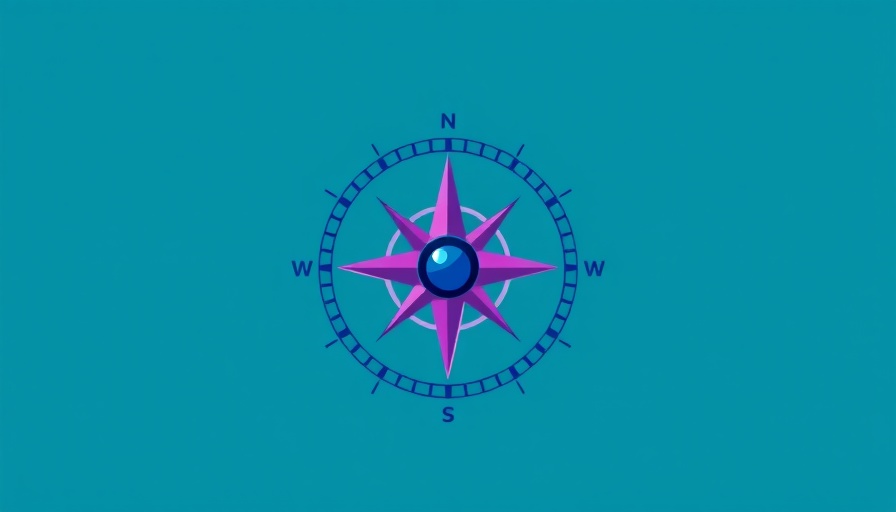
The Hope, Think, Know Compass: A Blueprint for Transformation
In an age marked by rapid change and uncertainty, the pursuit of transformation has never been more critical. What if the pathway to profound and sustainable change could be encapsulated in three simple words? For many, including entrepreneurs and corporate leaders, the words “I hope. I think. I know.” serve as guiding principles. They not only represent phases of cognitive evolution but also serve as a call to action to embrace the fundamental essence of human resilience and creativity.
Hope as a Catalyst for Innovation
At the core of any transformative journey is hope. It’s not merely a passive emotion but rather a proactive catalyst that inspires action and innovation. Viktor Frankl, whose insights derived from his harrowing experiences during the Holocaust, emphasized that life’s meaning is derived from the hope we foster within. This notion resonates deeply in entrepreneurial circles, where every successful innovation typically starts with a vision—an idea born from the hope that the status quo can be challenged and improved upon.
This phase is crucial; it allows entrepreneurs to visualize market potential in everyday challenges. When individuals cultivate hope, they’re empowered to think differently. They step away from merely accepting what is and begin envisioning what could be. It’s a psychological leap from complacency to aspiration, serving as a foundational step in any journey of change.
Reimagining Possibilities: From Hope to Thought
The transition from hope to thought marks a significant cognitive shift. In this stage, the passive acceptance of the world around us is upended. The aspirational questions such as “What if?” and “Why not?” propel individuals and organizations into a realm of possibility that paves the way for strategic change.
The “I think” phase shifts abstract aspirations into concrete strategies. It requires a reassessment of existing paradigms. Leaders and innovators begin to connect the dots across disciplines, uncovering new patterns and insights that pave the way for actionable outcomes. Through this rigorous analysis, they begin to construct a bridge between lofty visions and tangible reality.
The Power of Knowing: Your Inner Compass
As individuals progress to the final stage of transformation, they find themselves in the realm of “knowing.” However, this knowing is not the rigid certainty that conventional wisdom often prescribes. Instead, it embodies an inner compass forged through the alignment of hope and critical thought.
This deep-seated knowing is cultivated through real-world experiences, fostering resilience in the face of adversity. It’s the internal wisdom that empowers individuals to navigate uncertainty, adapt when necessary, and stay anchored in their vision, even when external circumstances seem overwhelming. This inner clarity is invaluable for leaders facing complex challenges, enhancing their ability to make decisions that align with their long-term goals.
From Individual Transformation to Collective Change
The compass of hope, thought, and knowing extends beyond individual transformation; it catalyzes collective progress. In organizational settings, nurturing a culture that values these phases fosters an environment where innovation thrives. Companies that embrace hope as a shared value encourage employees to voice aspirations, challenge norms, and contribute their unique perspectives to solve problems.
As teams transition through these phases, they reinforce a communal understanding that shifts not only how they interact but also how they approach challenges. When leaders embody this compass, they inspire their teams to take calculated risks, experiment without fear of failure, and ultimately push the boundaries of what’s possible.
Tools and Techniques for Implementation
To effectively harness the power of the Hope, Think, Know Compass, organizations can implement several practical tools:
- Vision Workshops: Facilitate sessions where teams can collaboratively express hopes and aspirations, fostering an environment of shared purpose.
- Strategic Questioning: Encourage leaders to ask open-ended questions that challenge existing frameworks and prompt innovative thinking.
- Resilience Training: Implement programs that focus on building resilience and encouraging adaptability within teams when faced with challenges.
Conclusion: Taking Action towards Transformation
The journey through hope, thought, and knowing is not merely theoretical; it is actionable. It compels us to examine our convictions, confront our challenges, and pursue transformation with intention and clarity. As we engage with these concepts, we can foster not only personal growth but also collective progress, driving innovation that resonates in every sector and across all dimensions of society.
 Add Row
Add Row  Add
Add 




 Add Row
Add Row  Add
Add 

Write A Comment